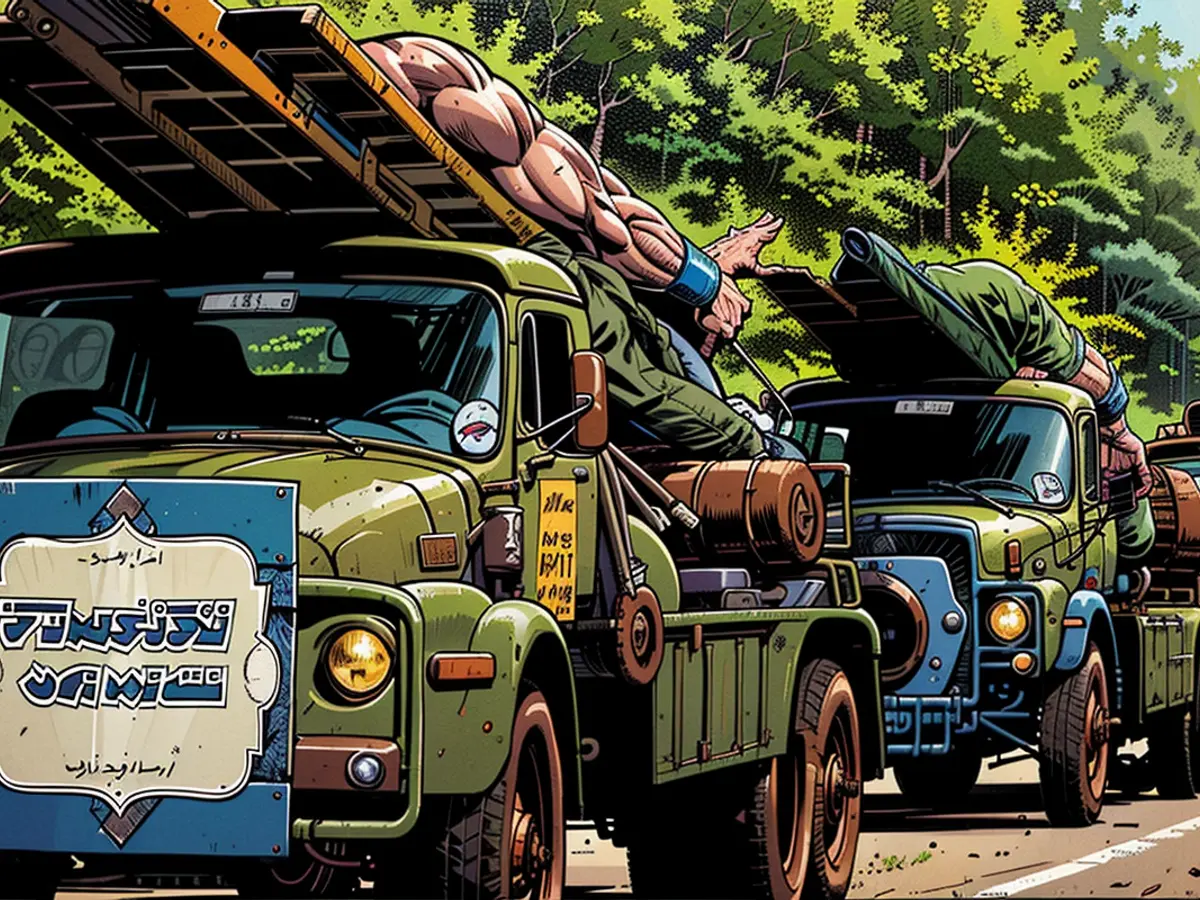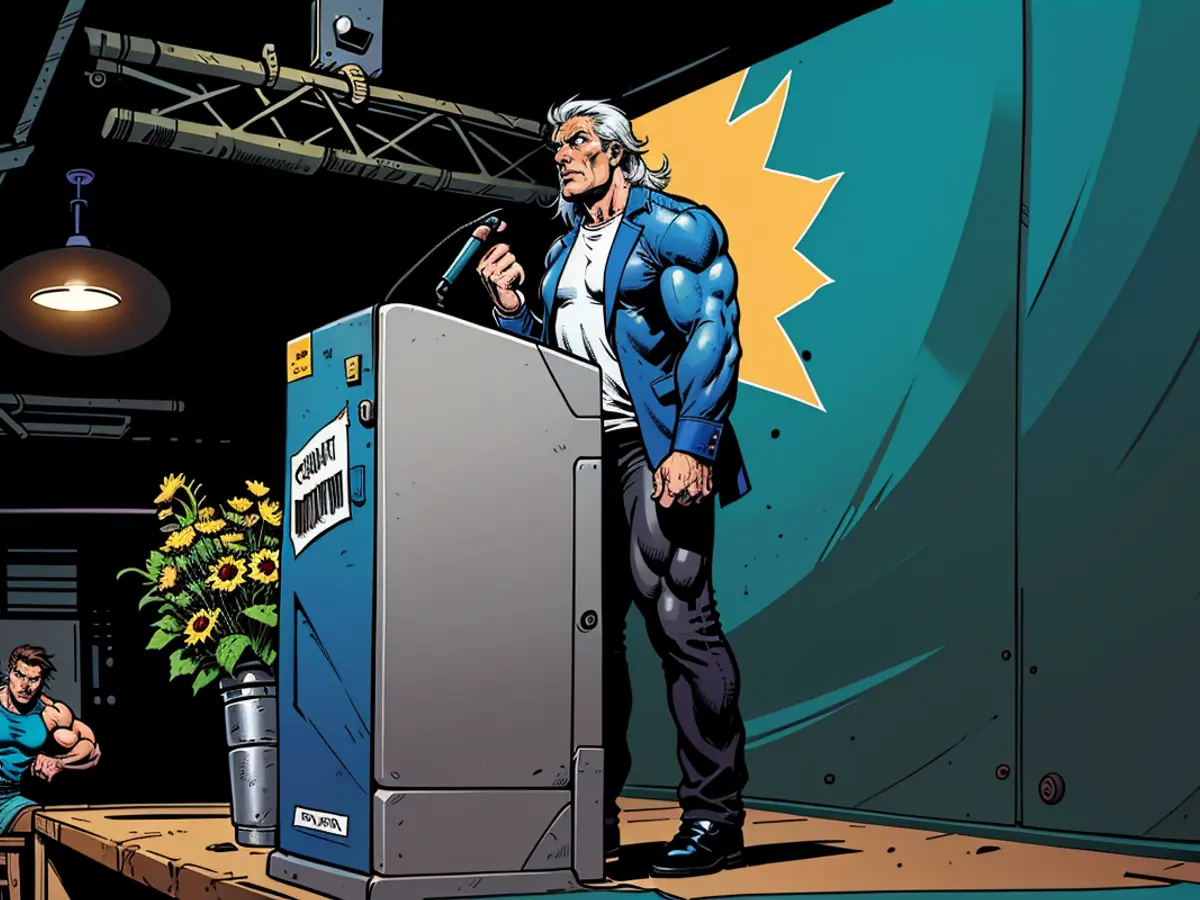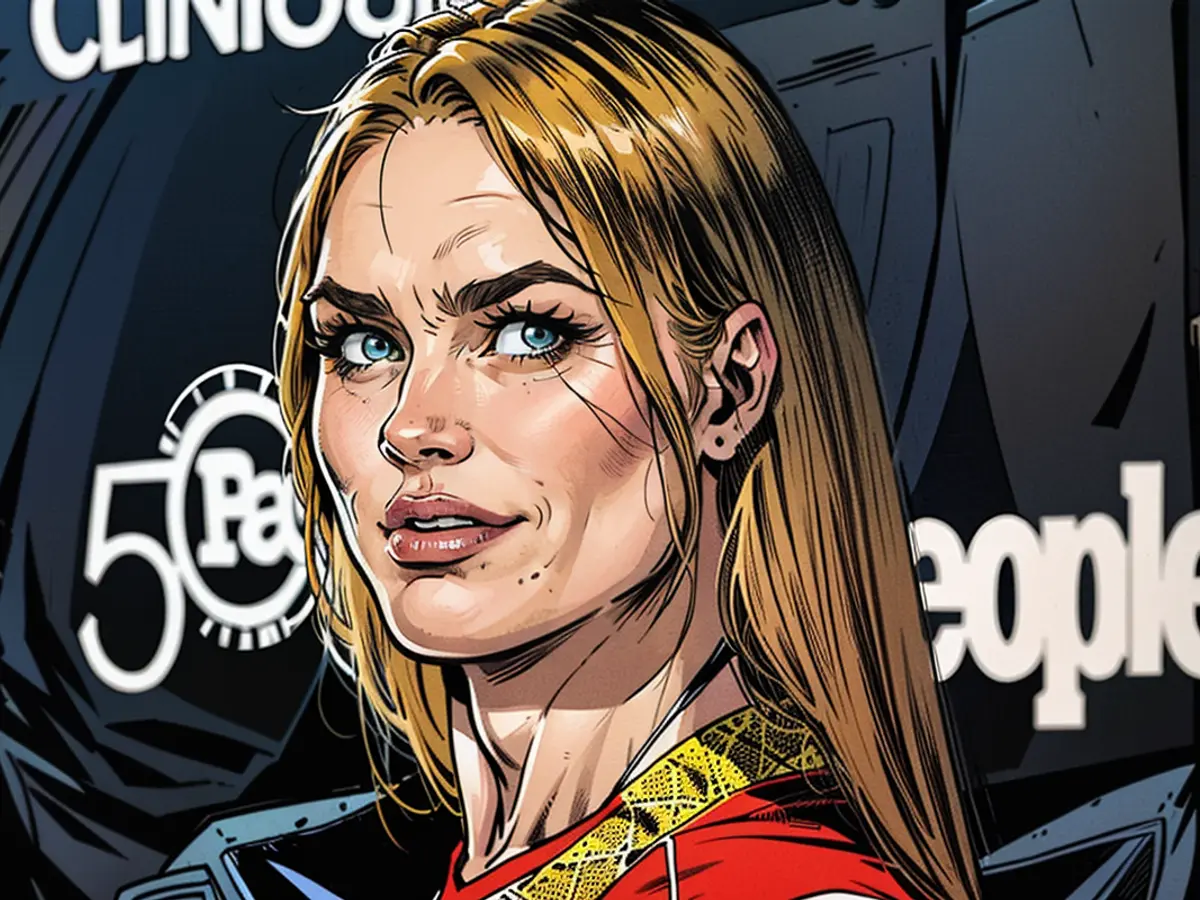In the battleground state of Arizona, both political contestants endeavor to garner support from the Navajo community.
Some spectators, positioned along Highway 264 with their outdoor seats, started jeering. "Scram out of here," one woman bellowed.
Joe Biden managed to triumph over Arizona by a slim margin of 10,000 votes – a first for the Democrats since 1996 – and the state has regained its significance as a pivotal battleground this year, with Kamala Harris' rise on the Democratic ticket perceived as repositioning Arizona back in the Democrats' favor.
The Navajo Nation is the largest tribe in Arizona, with around 131,000 members, as confirmed by the US Census. The participation of both political parties at Saturday's parade underscores the electoral impact of these tribe members, their potential to sway not just the presidency race in Arizona, but also a significant US Senate contest that might alter the political balance in Washington the following year.
For the first time, the Arizona GOP inaugurated a field office in Window Rock, the Navajo Nation capital, as per statements from Gina Swoboda, the state GOP chair. Just a week prior, the state party, alongside the Trump campaign and the Republican National Committee, likewise unveiled a field office in Flagstaff.
"Democrats have a firm belief that they control this vote segment," Swoboda said to CNN following the parade. "No one has a right to expect your vote; they must earn it."
In response to the party's reception at the parade, Swoboda emphasized that it's essential not to feel discouraged and that the GOP must remain present in the community.
"If the Nation itself said we're not welcome, that would be different," Swoboda said, adding, "we need to extend our outreach, and we won't halt our efforts as long as we're invited."
Nevertheless, the Harris campaign in Arizona asserts that it won't take any votes for granted. They have launched a field office in northeastern Apache Junction, close to several reservations, intend to invest in media campaigns in both English and Navajo on Tribal radio, and hold early vote events within the Navajo community.
The Harris campaign also traversed the Navajo Nation parade route last weekend, covering a distance of over 3 miles, with a float displaying a sign reading "skoden vote" – Navajo slang meaning "let's go then."
Emphasizing the significance of these votes, both Senate aspirants – Democratic Rep. Ruben Gallego and his Republican opponent, Kari Lake – participated in the parade, greeting partygoers and shaking hands as part of their outreach to Indigenous voters. The congressional district's contenders – Republican Rep. Eli Crane and his Democratic competitor, former Navajo Nation President Jonathan Nez, also attended, although the district is deemed noncompetitive in the upcoming elections.
In one of the most crucial Senate races in the nation, Lake and Gallego are seeking to succeed retiring independent Senator Kyrsten Sinema, a position Democrats desire to safeguard to preserve their narrow Senate majority.
This summer, Lake – who lost in the 2022 gubernatorial bid – toured the Navajo Nation Museum, interacted with locals at the fairgrounds, and visited the Navajo Code Talker Memorial with the former Navajo Nation Vice President Myron Lizer, as per her campaign.
Gallego, with aspirations to visit all of Arizona's 22 federally recognized tribes, expressed his intention to encourage Native American voters to cast their ballots.
"Both major parties tend to neglect Tribal leadership and residents, assuming one tribal nation represents everyone," Gallego said on Saturday. "That's a mistaken assumption."
A Marine veteran, Gallego attributed his ties to the Navajo Nation to his military comrades in the tribe. His campaign website emphasizes his efforts to improve healthcare access and voting rights for Native Americans, and his advocacy for addressing the crisis of missing and murdered Indigenous women.
Voters at Saturday's parade expressed their readiness to cast their ballots. Danielle Doctor, a 48-year-old Navajo Nation member, educator, and family trip leader from Phoenix, voiced her support for Harris for president and admired the disparity in reactions to the two campaigns' participation at the parade.
On the other hand, Tom Ranger, a 67-year-old Republican and Window Rock movie theater owner, expressed contrasting views. While he conceded that his political leanings place him in the minority, Ranger assessed that the sentiment among the tribe's voters is shifting and that they are growing disillusioned with the Biden-Harris administration's handling of the economy.
However, regardless of their political affiliations, voters from the Navajo Nation voiced a shared desire for more interaction from both parties.
Navajo tribe members contended with difficulties related to water, groceries, electricity, internet, and healthcare. A 2024 report from Democrats on the House Administration Committee highlighted that Native Americans also face various barriers to voting, including lengthy journeys for in-person voting due to rough or substandard roads, insufficient transportation, sluggish mail service, and the lack of residential addresses on reservations.
The United States Supreme Court recently upheld a part of an Arizona law that requires potential voters to provide proof of citizenship before registering to vote using a state form. This law, enacted in 2022, was initially contested by the Biden administration and various tribal and civil rights organizations, who expressed concerns that it would disproportionately affect Native Americans.
Diné (Navajo) activist Allie Young has been spearheading efforts to encourage Native American voters to cast their ballots, primarily through trail rides, since the 2020 election. This weekend, she will lead "Saddle up for Change," a six-leg, multi-day horseback journey, as a tribute to their ancestors who traveled long distances to vote due to the lack of transportation, with the goal of registering voters and updating their registration status in the rural regions of the Navajo Nation.
Young's "Ride to the Polls" campaign in 2020 was motivated, as she wrote in CNN the following year, by the inadequate number of ballot drop boxes, early voting locations, and limited voting hours across the Navajo Nation.
Democratic voter Loretta Charley, who traveled from the secluded Navajo town of Rocky Ridge for last weekend's parade, emphasized the importance of voting, but lamented that she has not observed any progress in infrastructure within her community.
"I'm personally very optimistic when I cast my vote, but then the promises they make during their campaigns start to fizzle out. And I understand how bureaucracy works, so to speak," she said. "Not everyone is inclined to assist Indigenous people."
Her secluded portion of the Navajo Nation seldom receives visitors, let alone political campaigns knocking on doors.
"I believe we're overlooked because of the distance. I wouldn't say forgotten, but I would say that we're overlooked due to our remote location," she said. "Who'd be willing to drive all the way out here?"
The political significance of the Navajo Nation’s votes was further underscored with the participation of both Democratic and Republican candidates in the parade, aiming to sway the outcome of the upcoming Senate contest and potentially alter the political balance in Washington.
Given the challenges faced by Navajo tribe members in terms of voter accessibility, such as lengthy journeys for in-person voting and insufficient transportation, the United States Supreme Court's upholding of Arizona's proof-of-citizenship requirement for registering to vote using a state form has raised concerns about disproportionate impact on Native Americans.





